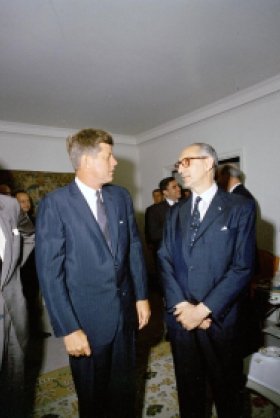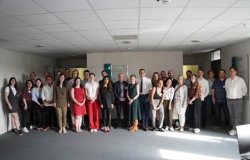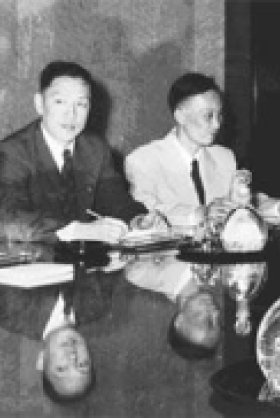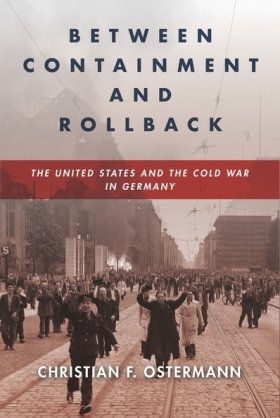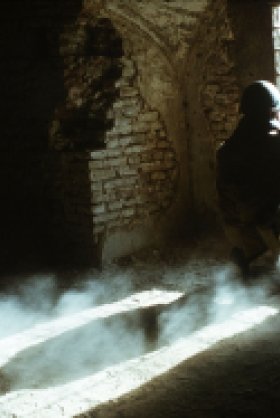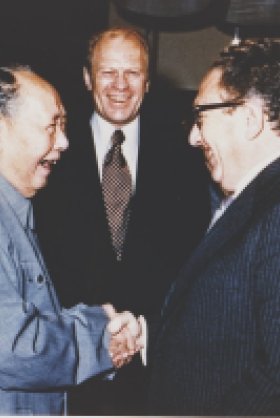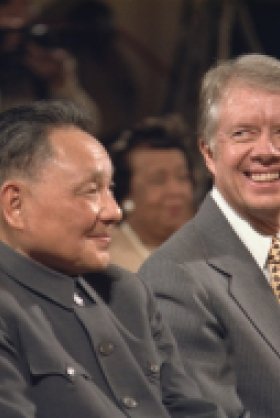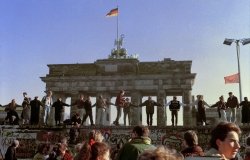Confronting Vietnam: Soviet Policy Toward the Indochina Conflict, 1954-63
On Wednesday, April 28, at 3:30 pm, author Ilya Gaiduk will discuss his new book which argues that the USSR attributed no geostrategic importance to Indochina and did not want the crisis there to disrupt détente. The panel discussion will also feature historians Kathryn Weathersby and James G. Hershberg. This event is open to the public.
Based on extensive research in the Russian archives, Ilya Gaiduk's new book Confronting Vietnam: Soviet Policy towards the Indochina Conflict, 1954-1963 examines the Soviet approach to the Vietnam conflict between the 1954 Geneva conference on Indochina and late 1963, when the overthrow of the South Vietnamese president Ngo Dinh Diem and the assassination of John F. Kennedy radically transformed the conflict.
Ilya Gaiduk argues that the USSR attributed no geostrategic importance to Indochina and did not want the crisis there to disrupt détente. The Soviets had high hopes that the Geneva accords would bring years of peace in the region. By the early 1960s, however, the Soviets felt obliged to counter the American embrace of an aggressively anti-Communist regime in South Vietnam and the hostility of its former ally, the People's Republic of China. Finally, Moscow decided to disengage from Vietnam, disappointed that its efforts to avert an international crisis there had failed.
About the Author
Ilya Gaiduk is senior research fellow at the Institute of General History, Russian Academy of Sciences, Moscow. He has been a regional exchange scholar and a Cold War International History Project Fellow at the Woodrow Wilson International Center for Scholars in Washington, D.C. He is also the author of The Soviet Union and the Vietnam War, covering the period from 1964 to 1973.
About the Panelists:
Kathryn Weathersby is a Public Policy Scholar at the Woodrow Wilson Center and Senior Scholar with the Cold War International History Project. A specialist on the Soviet role in Korea, her publications include "The Soviet Role in the Korean War: The State of Historical Knowledge," in William Stueck, ed. The Korean War in World History (The University Press of Kentucky, 2004); "Should We Fear This?: Stalin and the Danger of War with America," CWIHP Working Paper No. 39 (2002); "Stalin, Mao and the End of the Korean War," in Odd Arne Westad, ed., Brothers in Arms: The Rise and Fall of the Sino-Soviet Alliance (Woodrow Wilson Center Press and Stanford University Press, 1998); "Deceiving the Deceivers: Moscow, Beijing, Pyongyang and the Allegations of Bacteriological Weapons Use in Korea," Bulletin of the Cold War International History Project 11 (1998); and articles in CWIHP Bulletins 5 and 6/7 presenting and analyzing Russian archival documents on the Korean War.
James G. Hershberg received an A.B. in American History from Harvard College in 1982; a Master of International Affairs from Columbia University in 1985; and a Ph. D. from Tufts University in 1989. After teaching at Tufts and the California Institute of Technology in 1989-91, he directed the Cold War International History Project (and edited the project's Bulletin) from 1991-96 before coming to George Washington University in 1997 and now edits the CWIHP book series co-published by the Stanford University and Wilson Center Presses. He is the author of James B. Conant: Harvard to Hiroshima and the Making of the Nuclear Age (Knopf, 1993; Stanford University Press, 1995), a study of the former Harvard president, atomic bomb project administrator, diplomat, and educational commentator. He received the 1994 Stuart Bernath Prize from the Society for Historians of American Foreign Policy. Other scholarly and popular articles have focused on topics related to Cold War and nuclear history such as the Cuban Missile Crisis, the Iran-contra affair, and revelations from the communist archives.
Related Links
Related Program

Cold War International History Project
The Cold War International History Project supports the full and prompt release of historical materials by governments on all sides of the Cold War. Through an award winning Digital Archive, the Project allows scholars, journalists, students, and the interested public to reassess the Cold War and its many contemporary legacies. It is part of the Wilson Center's History and Public Policy Program. Read more
